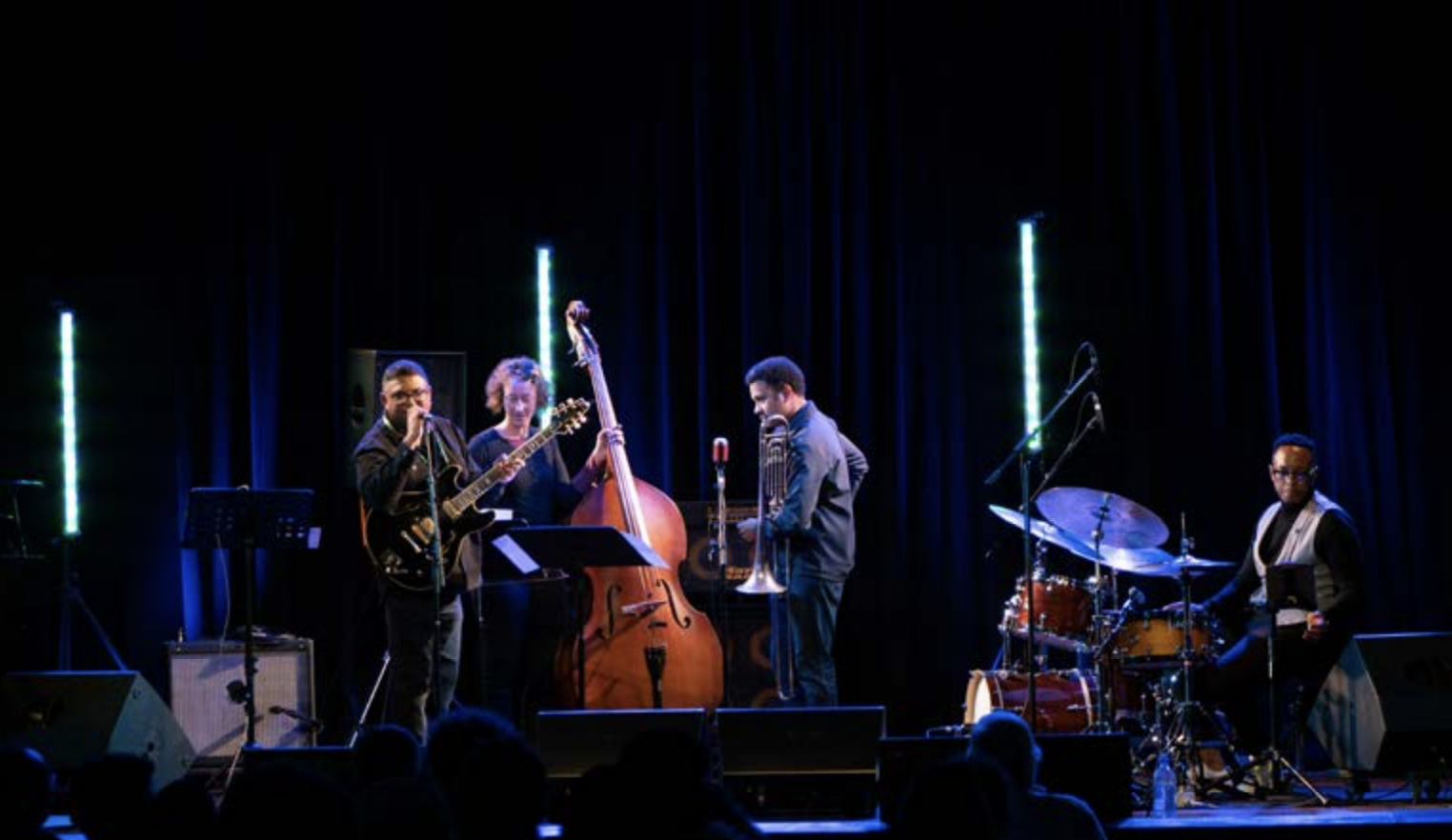By Benny Mojela
Jazz is a central component to the life and soul of the National Arts Festival (NAF). A large part of that fervour are the personalities that make up the programme. A highlight of this year’s Jazz fest, is the guitarist, Mageshen Naidoo who, together with Eva Kess, Kyle du Preez and Sphelelo Mazibuko, bring you KEMiStry.
Originally hailing from Chatsworth, Naidoo has performed across the globe, only to return to the NAF stage this year to dazzle audiences. Cue sat down with the acclaimed musician to discuss his music, influences, and experience working and studying in the USA.
What or who inspired you to be a musician and an academic?
The underlying thing of all of my pursuits was to be the best guitarist I can be and at some point I had studied with some of the best guys out there. Some of my teachers were people like Zami Duze, Sazi Dlamini and Johnny Fourie – a great jazz legend. So, I took some lessons from them (but not a lot).
Naidoo, in 2005 you returned from the U.S. How was the experience?
When I was awarded the Fullbright scholarship, I travelled to the U.S. It was the best time of my life because I was in Los Angeles in Hollywood doing all the film stuff, learning in some of the best studios in the world. It was a good studio guitar program. The last time I was interviewed by Cue I was a student; I had just returned from the USA actually!
You did a wonderful piece, the ‘Baked Potato’, earlier inspired by a place in LA. What does that piece mean to you, musically?
It’s just a memory. A lot of my pieces are about memory – especially memories of when I lived in the U.S. and I was missing home. I had occasions where I met South African musicians and would miss home so I’d write something. But this particular one has that L.A sleek vibe, you know, like, rocky. It’s that sound… it’s like a funky sound. It reminds me of that time and takes me back there.
You have a piece inspired by Maskandi. It feels like Durban. Tell us more about your childhood memories, visiting Indian markets with your mom and watching Maskandi performance under the bridge.
When you are a guitarist and you are from Durban you cannot ignore Maskandi. For me, that’s the authentic guitar sound of Durban. I keep telling my students now that they have to study this style of music. It’s indigenous to the region and in South Africa it has influences in Mpaqanga. So, I try to incorporate that into my music and when teaching it.
This interview has been edited and condensed for clarity and brevity.


